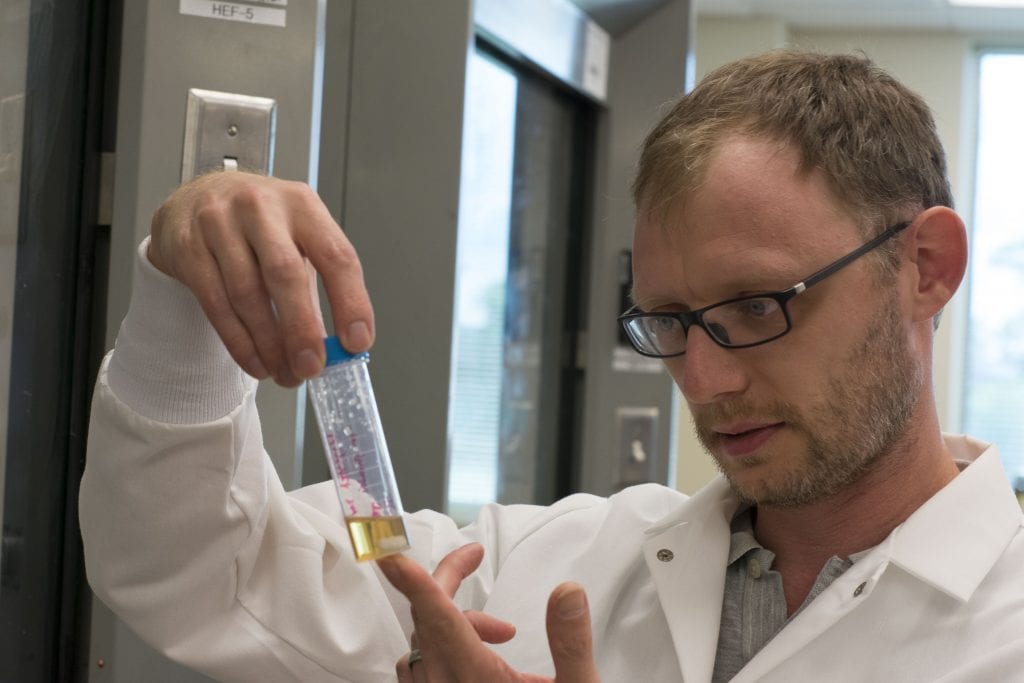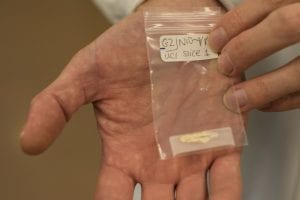Research Holds Life-Changing Potential For Malnutrition Victims

Research underway in the National Center for Forensic Science carries life-changing potential for people suffering from malnutrition or exposure to hazardous toxins.
Malnutrition is the source of a host of health issues, including zinc deficiency. Low amounts of the mineral can delay growth in children, suppress the immune system and even cause brain damage. The effects can be reversed with supplements, but only if zinc deficiency is correctly identified through a blood test. That’s easier said than done in the developing countries where malnutrition is most common, with lab results taking days to complete. Now a near instantaneous result is on the horizon.
A team of researchers led by Matthieu Baudelet, Ph.D., was funded by the National Institute of Health through the company Neurobiotex, Inc., to develop the calibration standards for a device that can test for zinc deficiency using fingernails. The standards have been developed and are waiting on final validation from the company. 
To do that Baudelet and his team work daily with the protein that forms the basis of our hair and nails: keratin. While commercially available in a powder form, other options have been explored, which led to some interesting conversations.
“I was getting a haircut and asked if they could collect hair for my research. They agreed after I explained what I was doing” Baudelet said with a laugh. “I went back a few days later and they had a garbage bag full.”
Baudelet’s team have also been developing standards for other biological materials like teeth and bones for health and forensic applications. This includes identifying toxins like lead and mercury in people exposed to chemicals through mining, construction and pollution.
Sitting in a lab for hours doesn’t compare to the exciting forensic work on explosive TV crime dramas, Baudelet said. But the work is making a much bigger impact on the world.
“It’s not nearly as sexy as crime scene work, but the results from that work wouldn’t be possible without qualitative standards for chemical profiles. And that’s what we’re contributing,” Baudelet said.
